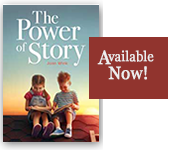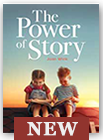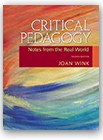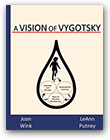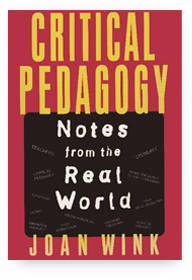Dear WinkWorld Readers,
In the past month, I have been asked by 3 different groups: What is literacy? I suspect what they are asking is: Is literacy only reading and writing?
This is a bit tricky, as I really like to keep my WinkWorld posts relatively short. Hmmm. In the new book, The Power of Story, a whole section (pp. 28 -33) attempts to answer the question, what is literacy?. Here is a short clip.
Years ago I thought I understood literacy–it was reading and writing. Remember when we thought it was that simple?Turns out that we were wrong. Perhaps our traditional assumptions of literacy were not just simple, but maybe even simplistic.
The world has changed. Schools have changed. Students have changed. Technologies and media have revolutionized our understandings of literacy, and students may even wonder about old technologies and find them to be quaint and peculiar. Students of today have never lived in a “books only” world. The academic literature is alive with discussions of the breadth and depth of meanings of the new literacies (Asselin, 2004), but for the students this is not new–it’s the way it has always been….
Previously, I have written about functional literacies, academic literacies, workplace literacies, informational literacies, constructive, emergent, and cultural literacies. (Still with me? There are more.) More recently, we have learned of family literacies, community literacies, reflective literacies, library literacies, and web literacies (Wink, 2018, pp. 28-30).
Of course, critical literacies has held my interest for years. More recently, Gorski & Swalwell (2015) have expanded this notion with equity literacy. Road warrior literacy and junk literacy (ok, ok, I made them up) are my present favorites (Wink, 2018, p. 30). Aliteracy (p. 31) is a disturbing new concept; it describes kids who can read, but who choose not to read in a deep and thoughtful manner; rather, they read in nanoseconds on their devices almost exclusively.
Reading the Word, and Reading the World, a notion from Paulo Freire, explains it best. We spend a lot of time in schools to get kids to “read the word,” but we need to realize that kids also “read the world” very clearly. Yes, literacy is reading and writing, but it is informed by the social, cultural, historical, and political world.
At least for me, literacy is much bigger and deeper that simply reading and writing.
Hope this helps the three groups who happened to ask that question. I am sure that I will be sharing more on the new, complex understandings of literacy.
